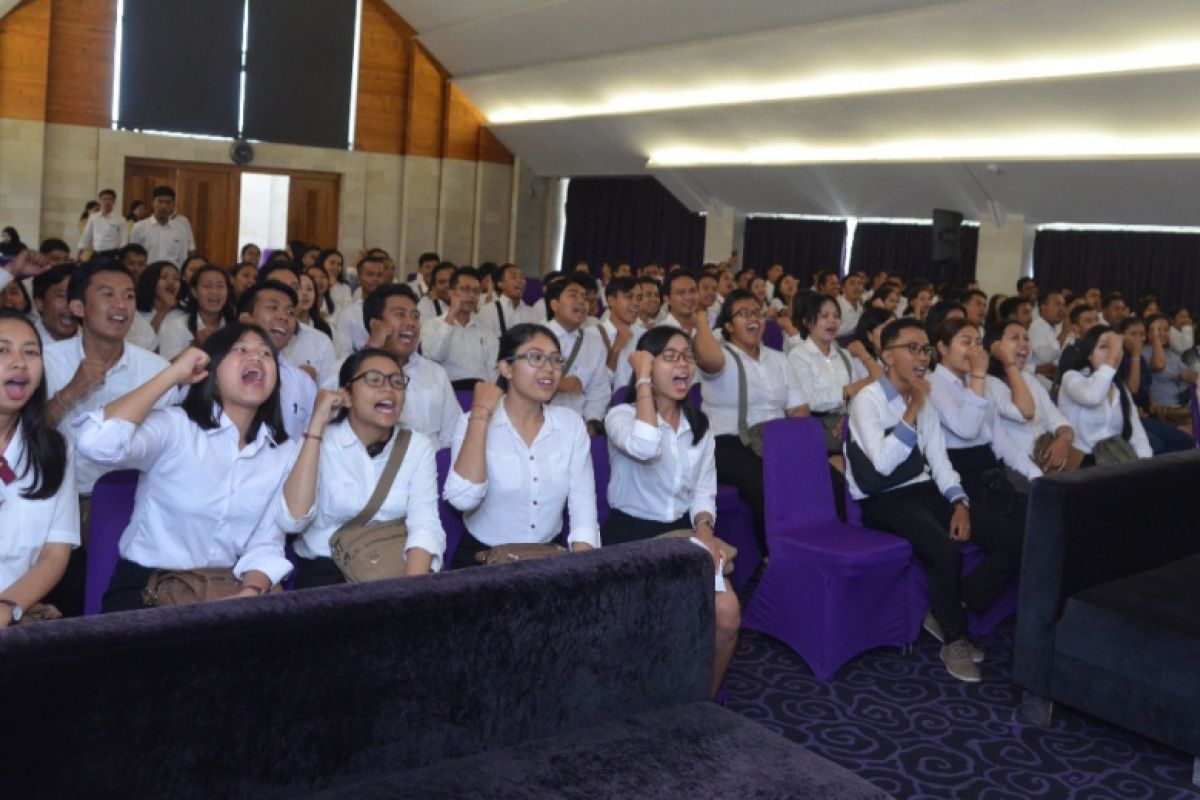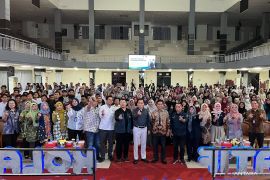In its survey titled "Penetration and Behavior of Internet Users in Indonesia in 2017", the Association for Internet Service Provider in Indonesia (APJII) revealed that users aged 19-34 years old are the greatest contributors with 49.52 per cent, followed by 35-54 years old (29.55 per cent), 13-18 years old (16.68 per cent), and beyond 54 years old (4.24 per cent).
Based on the growth of the Internet, Indonesia will become a mobile and digital nation. Nowadays, there are 220 million mobile subscriptions in Indonesia as the Internet is becoming mainstream.
However, connected Indonesians are digitally savvy. They are netizens in every sense of the world with a need for constant connectivity, instant information and a growing appetite for digital content.
They spend a higher-than-average amount of time on the Internet, primarily engaging in heavy social media usage and e-commerce.
Their social media usage is among the highest of any population in the world, based on a study by Mckinsey.
Meanwhile, the rising consumer class is fueling the Indonesian economy through increased consumption. In 2012, there were 45 million members of the consuming class in Indonesia, and this may grow to 135 million by 2030, said Managing Director for Southeast Asia Twitter Parminder Singh.
This is supported by the growing working-age population: Indonesia`s young and expanding population could reach 280 million by 2030.
Unlike many economies, including those in Asia with rapidly ageing populations, there are high expectations that numbers in Indonesia will remain young and grow until 2025, contributing an annual 2.4 percent economic growth until 2030.
The consumer class is always connected, which might say something about the popularity of social media in Indonesia. And generally speaking, they want the best of everything, Singh said.
In a new world driven by technology, all youth should have the opportunity to advance their creativity, critical thinking, and problem-solving skills by learning computer science.
Digital skills are essential to boost the economy. Businesses without these skills will be left behind.
Jack Ma, founder and chairman of Alibaba, the largest Chinese e-commerce enterprise, will enable thousands of Indonesian youth to apply for advanced internet training at his upcoming project, the Jack Ma Institute of Entrepreneurs.
"We are going to provide ample opportunities for young Indonesian people to learn. Specifically, we aim to offer 300 of (opportunities) to developers and engineers to learn how to do cloud computing," Ma noted during the IMF-World Bank Annual Meeting 2018 in Nusa Dua, Bali, on October 13.
The initiative was pledged by Ma in a bid to support the Indonesian government`s target to create 20 thousand digital talents, who are ready to work in the 4.0 revolution era.
The institute alone is expecting to train one thousand tech leaders in the next decade through the fellowship`s plan. Hence, Ma has underlined that Indonesian youngsters have ample opportunities to get a seat in the training fellowship.
Leadership mentoring activities for small business entrepreneurs have been a passion for Ma, moreover, after his announcement to step down as Alibaba`s CEO next year.
"However, we do not as yet have a specific plan. I think, say in the next three years, let us start to train the trainers, let us start to train some people, and then we know what needs to change, how to change it, what they need, what they do not need, what is the mistake, and thereafter, we can make a concrete proposal," he stated.
Ma also emphasized that he did not come to Indonesia to solely do business, instead, he had proposed to be an adviser of the Indonesian government on how to develop local entrepreneurs to hone their skills to enter the e-commerce market.
In addition, Coordinating Minister for Economy Darmin Nasution said that capital and human resource capacity is key in facing the era of a digital economy.
Indonesia also is developing Industry 4.0, which is based on the development of technology.
Therefore, Indonesia has to be ready with effective human resources in digital economy.
Accommodative Policy
The President of the Republic of Indonesia, Joko Widodo, stated that development of the digital economy requires an accommodative policy.
To that end, the authorities should apply light touch and safe harbor policies (separate responsibilities for the providers of e-commerce marketplace forums and the end-users of their services).
Therefore, innovation is given adequate room to thrive.
The President of the Republic of Indonesia added that the digital economy has become the lifeblood of the retail economy.
Accommodative regulation is increasingly important in order to avoid pushing the public towards the unregulated, or dark web.
Consequently, a lot of work must still be done in terms of socialization activities targeting the authorities.
Meanwhile, Senior Deputy Governor of Bank Indonesia Mirza Adityaswara stated that optimizing digital financial and economic technology is crucial in order to enjoy the benefits of such technology.
Nevertheless, risks could also emerge as a result of using technology. Therefore, policymakers have an important role to play in supporting the proliferation of technology while also maintaining stability and security.
The broad reach of technology is having implications on the business processes of the central bank, including the emergence of Central Bank Digital Currency (CBDC).
With sound regulation, optimized technology and rigorous research, Indonesia will effectively exploit the advantages of digital economic development.
Editing by Rahmad Nasution
Reporter: Azis Kurmala
Editor: Fardah Assegaf
Copyright © ANTARA 2018












